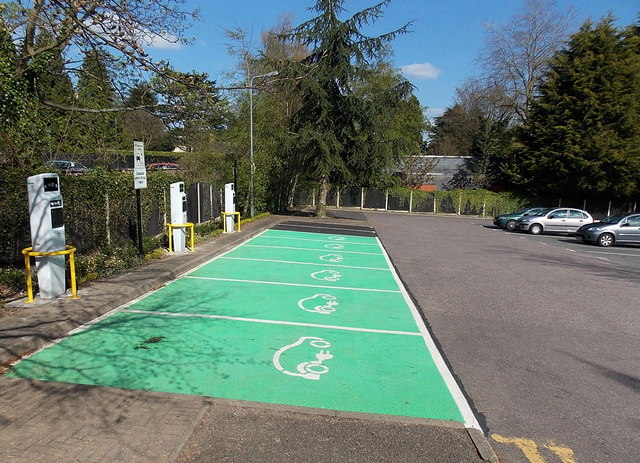 The scarcity of charging stations has been one of the leading reasons for the relatively slow acceptance of electric vehicles in the United States for years now, and it’s clear that they will not become mainstream until more stations where they can be recharged are put in place. While some automakers are trying to help improve the infrastructure by installing stations on their own, the government tries to do its part, as well, as it tries to make electric cars seem more appealing, by offering financial incentives and by trying to expand the existing charging network, and one of the most important projects for promoting such vehicles is EV Everywhere, which aims to accelerate the advancement of electric vehicle technologies and charging solutions.
The scarcity of charging stations has been one of the leading reasons for the relatively slow acceptance of electric vehicles in the United States for years now, and it’s clear that they will not become mainstream until more stations where they can be recharged are put in place. While some automakers are trying to help improve the infrastructure by installing stations on their own, the government tries to do its part, as well, as it tries to make electric cars seem more appealing, by offering financial incentives and by trying to expand the existing charging network, and one of the most important projects for promoting such vehicles is EV Everywhere, which aims to accelerate the advancement of electric vehicle technologies and charging solutions.
The EV Everywhere initiative was launched in 2012 as part of Energy Department’s efforts for ensuring a clean energy future, and part of that initiative is the Workplace Charging Challenge, which is supposed to make owning and charging an electric car much more convenient. The Department of Energy (DoE) said recently that the Workplace Charging Challenge has been quite successful and helped raise the number of stations drastically over the past couple of years.
This challenge involves encouraging employers to install charging stations at company premises by giving them tax credits and green credentials, so that employees who own EVs can charge their cars at the workplace for free. This way, more people can commute by EV, which is now pretty difficult to do for most employees, given the lack of publicly available charging stations that would make long-distance travel by EV easier.
According to the DoE, the challenge has proven to be very effective, as it helped double the number of workplace stations, with almost 4,000 station in May 2014, compared to about 2,000 in June last year. What’s more, a study conducted by the Department found that 1 in 73 employees with the companies participating in the challenge drive a plug-in car, drastically more than the national average, with one in 1,400 employees. Also, stations at 90 percent of the companies were being used continuously during working hours five times a week, which suggests that the investment in the installation of charging stations was worth it.
Almost 1,000 of those charging sites have 120-volt Level 1 stations, and the rest of them are fitted with Level 2 chargers.
When the Workplace Charging Challenge started, it was supported by 13 companies, and now there are over 150 companies involved in the project, with more than 600,000 employees, according to data from the Department of Energy.
The number of workplace chargers is expected to grow further in the future, with Navigant Research projecting that it will reach 60,000 by 2020, which would definitely help make electric vehicles a more viable alternative to gasoline-powered cars, and reduce greenhouse gas emissions significantly.